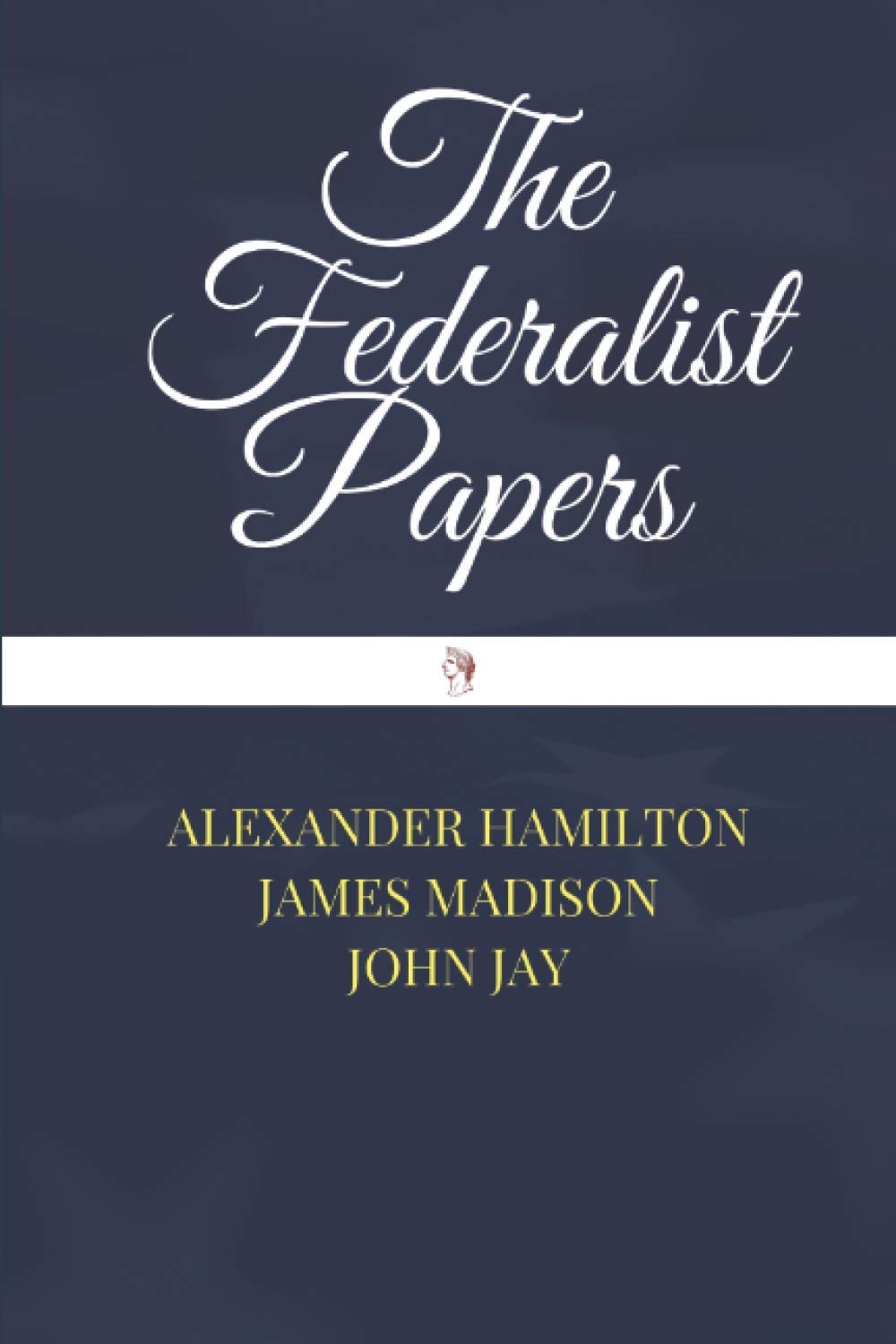By Alexander Hamilton, James Madison, and John Jay

About this book
The Federalist Papers is a collection of 85 essays written by Alexander Hamilton, James Madison, and John Jay, and published in 1787 and 1788. These essays, which were originally published in various newspapers, were intended to explain and promote the ratification of the United States Constitution. The Federalist Papers are a classic of American political thought and remain essential reading for anyone interested in the history and politics of the United States. Through their arguments, the authors sought to demonstrate the wisdom and necessity of the proposed Constitution. The Papers are a source of insight into the intentions of the Founders and the struggles they faced in establishing a new nation.
Considered a keystone of American democracy, some of the more famous articles dealt with:
Dangers from foreign arms and influence; dangers from dissensions between the states.
The Union as a safeguard against domestic faction and insurrection.
The need for a federal government able to raise revenues through taxation.
The power of Congress to regulate the election of members; the creation of an electoral college.
The power of the Senate to sit as a court for Impeachments; the objectives and powers of the judiciary.
An enduring classic of political philosophy and a milestone in political science, Thomas Jefferson hailed The Federalist Papers as the best commentary ever written about the principles of government. They also provide a valuable resource for understanding the U.S. Constitution and the principles of government it established. The Federalist Papers remain an indispensable resource for anyone interested in the history and development of the United States.
Author information
Alexander Hamilton (1755-1804) was one of America's Founding Fathers and a key leader in the early days of the United States. Hamilton was a lawyer, economist, statesman, and political theorist who had an incredible impact on the early economy and government of the United States. He was a delegate to the Constitutional Convention, the first Secretary of the Treasury, and the creator of the modern American financial system. Hamilton's influence helped to shape the United States as it is today. He was a strong advocate for a strong central government and was also a proponent of free trade and public credit. His legacy continues to shape American politics and economics even today.
James Madison was an American statesman, political theorist, and the fourth president of the United States. He is hailed as the "Father of the Constitution" for being instrumental in the creation of the United States Constitution and the Bill of Rights. Madison served as a leader in the early American government, helping to shape the country's laws and legal structure. He was also a key figure in the development of the American political system, advocating for a strong federal government and the separation of powers. Madison was a major proponent of civil liberties, religious freedom, and economic development. He is remembered for his commitment to strengthening the nation's economy, promoting democracy, and protecting the rights of all citizens.
John Jay was a renowned lawyer, diplomat, and statesman who played a key role in the founding of the United States of America. He was a delegate to the Second Continental Congress and the first Chief Justice of the United States Supreme Court. He negotiated the Treaty of Paris, ending the Revolutionary War, and negotiated the Jay Treaty in 1794, which helped avert a war between the United States and Britain. He was also the author of five of the Federalist Papers, which were influential in the ratification of the US Constitution. John Jay was a leader in the abolitionist movement, and he was the first President of the American Academy of Fine Arts. He was a pioneer in the fields of foreign affairs, diplomacy, and constitutional law.
-
Xi urges teachers to contribute more to realizing national rejuvenation
Xi urges teachers to contribute more to realizing national rejuvenation
-
Chinese premier calls for advancing economic globalization, unity within G20
Chinese premier calls for advancing economic globalization, unity within G20
-
China's opening-up, improved business environment garner foreign investors' confidence
China's opening-up, improved business environment garner foreign investors' confidence
-
Russian-Chinese forum "Rostki" boosts practical cooperation
Russian-Chinese forum "Rostki" boosts practical cooperation